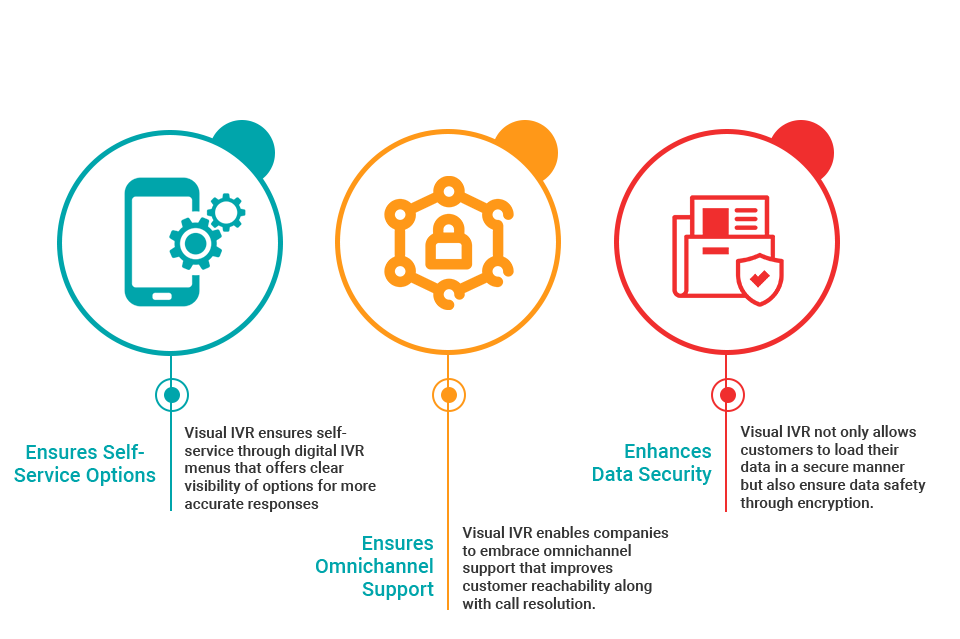IVR : The Future of Enhanced Communication is Here!


How does IVR works?
IVR combines existing physical phone systems with Voice Over Internet Protocol technology to create a call routing system. In doing so, IVR software supports this system with automated menus that direct calls to the appropriate departments, live agents, or databases based on the caller's selections.
Automated IVR menus typically use voice recognition software or dual-tone multi-frequency touch-tone keypads to receive and interpret customer input and automated call distribution software to direct calls to agents.
Advantages of IVR
Best Customer Service
By utilizing the IVR systems, a client will feel that he or she is being better attended to. With any question that a customer might have, a quick response is always available. The response is informative and time efficient, and all one has to do, is to follow the instructions from the set menu.
Unlimitted Customer Access
Customers can make use of the IVR systems at any time of their convenience as it performs its task 24 hours a day within 7 days a week. While office hours, holidays, and breaks dictate and limit employee availability, IVR systems are always at the customer’s disposal.
More Profits To The Company
Increasingly, a large portion of business deals and transactions take place over the telephone. Some of the companies lagged behind with the traditional way of having receptionists who respond to the customer calls.
Increased Production
This is possible through call routing. Routing callers to the specific departments or staff member to address their needs means that there is a less time spent conferring with colleagues to find the right answer or transferring the caller around until they get what they need.
Wider Personalization
IVR systems allow for tremendous personalization that helps to create a better relationship with customers. Each IVR system can be modified and programmed with personalized greetings for the known callers. This is possible as the client or the caller ID information is available.
Error Free
Using an IVR makes your entire process less error-prone, compared to relying on a traditional receptionist. With the high volume of calls, they will tend to be a burden to the receptionist.
Use Cases
-
Routing Calls
IVR systems are used to route incoming calls to the appropriate department or agent. By providing customers with a series of options, IVR can help reduce wait times and improve customer satisfaction.
-
Basic inquire and Transaction
IVR systems can handle basic inquiries and transactions, such as checking account balances, making payments, and updating personal information. This can help businesses save time and resources by automating these processes and reducing the need for live agents.
-
Surveys and Feedback
IVR systems can be used to conduct surveys and gather feedback from customers. This can provide businesses with valuable insights into customer satisfaction and help identify areas for improvement.
-
Appointment Scheduling
IVR systems can be used to schedule appointments and send reminders to customers. This can help businesses manage their schedules more efficiently and reduce no-shows.
-
OutBound Calls
IVR systems can be used to make outbound calls to customers for a variety of purposes, such as appointment reminders, payment reminders, and surveys. Overall, IVR is a powerful tool for businesses and organizations looking to streamline their customer interactions, reduce wait times, and improve customer satisfaction.
